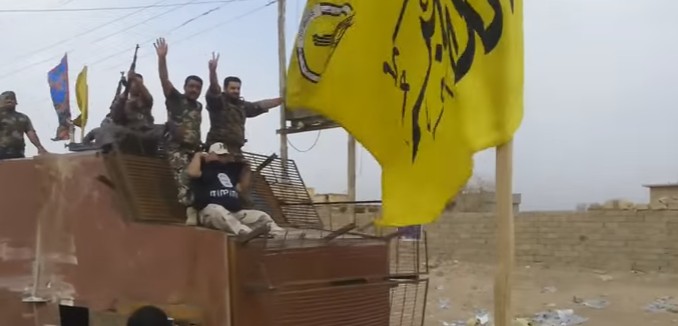The Iraqi parliament recently passed a law allowing Iran-backed Shiite militias to keep their command structure in place, raising concerns among the country’s Sunni leaders, The Wall Street Journal reported Monday.
“The legislation legally empowers the militias and makes them ultimately answerable to Iraq’s prime minister, but it also allows groups that have been accused of abuses against Sunnis to maintain command structures separate from the nation’s police and military,” the Journal explained.
Sunni lawmakers believe that the bill could further enflame sectarian tensions. “We believe that this is the start of partitioning Iraq and a clear rejection of the Sunnis in the country,” said Mohammed al-Karbouli, a Sunni member of Iraq’s parliament who boycotted the Saturday vote on the bill.
The militias, known as the Popular Mobilization Forces (PMF), are accused of carrying out systematic human rights violations in Sunni territories that fell under their control. Survivors who spoke to Reuters accused the PMF of having “detained, tortured and abused” Sunni civilians during the Iraqi government’s effort to recapture of the city of Fallujah in June.
Sunni parliamentarians including al-Karbouli charged that the law, which was supported by Iraq’s Shiite majority, was designed marginalize them.
While the law calls on the PMF drop their political affiliations and act as members of Iraq’s armed forces, “it wasn’t clear how Iraq’s leadership would untangle the PMU from their ideological backers,” the Journal wrote. “Many of the groups are supported by Iran and their leadership is ideologically aligned with Iran’s supreme leader, provoking the mistrust of both the U.S. and Iraqi Sunnis.”
The PMF raised Shiite flags in the beginning of the battle for Mosul, the last ISIS stronghold in Iraq, raising concerns among local Sunnis.
The close ties between Iran and the PMF, which the Associated Press called “just as brutal” as ISIS in 2014, have been extensively documented. The militias are headed by Abu Mahdi al-Mohandis, who U.S. officials have accused of bombing the American and French embassies in Kuwait in 1983. Al-Mohandis, a deputy of IRGC chief Soleimani, was designated by the U.S. Treasury Department in 2009, along with Kata’ib Hezbollah, one of the main PMF militias, for targeting American and coalition forces in Iraq.
The UN’s high commissioner for human rights, Zeid Ra’ad al-Hussein, declared in July that there was strong evidence that the PMF committed atrocities in the battle for Fallujah.
The growing strength and influence of the PMF, not just in Iraq, but in Syria too, is stoking fears among Sunnis across the Middle East that Iran is creating a “Shiite Crescent” to project its power throughout the region.
[ Photo: Stahlgewitter Syrien / YouTube ]




